Economics and political evolution
Most political mistakes are made by sacrificing the future to the present.
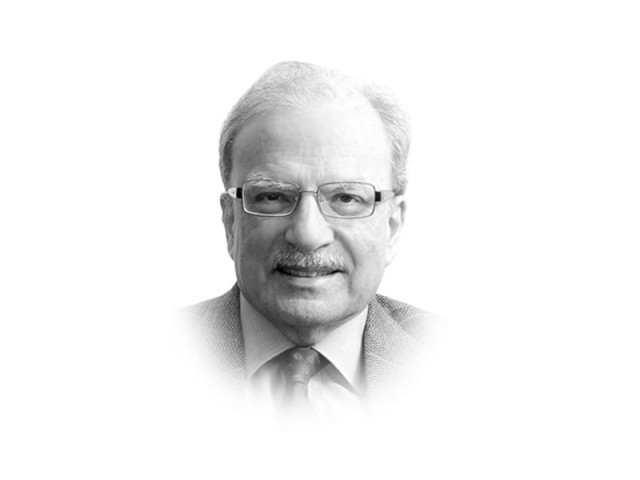
Economic theory and practice would have suggested a tightening of money supply, not its easing. This was not expected by a dozen or so senior economists, who, when they were questioned before the Bank’s credit committee met, predicted that either the policy won’t change or there may be a slight rise in the rate. The bank’s action confounded economists and further eroded the confidence of those watching economic developments on the seriousness of policymakers with regard to addressing the grim economic situation the country currently faces.
The answers to these questions are not to be found in economics but in politics. As democracy continues to take hold in the country, policymakers are working to ensure their survival by not keeping the men in uniform satisfied with their performance. This is what happened when a series of prime ministers were sent home by the powerful military for having failed to provide good economic management. Their removal was in fact demanded by senior politicians who occupied the opposition benches in the legislature. And when the military intervened, even the press welcomed their arrival. There are no calls this time around for history to repeat itself. The reason is that political forces are looking at some of the developments outside the country’s borders and drawing important lessons for shaping their own actions. Three of these developments are particularly important. Two of these occurred — or, more accurately are still occurring — in the Arab world, while the third took place in Turkey.
The first of these is the effective use by the youth in the Arab world of new media to get organised and challenge the established political order. They used such new instruments of communication as Facebook and Twitter and such devices as the iPad and mobile telephones to gather and demonstrate on the streets. This expression of discontent didn’t need political organisations for mobilisation. The strength of this uprising was drawn from the depth of despair that had built up over years and decades. The authoritarian regimes in Tunisia and Egypt were not able to use their well-developed security forces to keep themselves in power. Once the military establishment in these two countries indicated that it would not intervene to keep in place the discredited leaders, regime change became inevitable. Yemen, Libya and Syria have not gone the way of Tunisia and Egypt for the reason that those in power have managed to stay there by exploiting the social, cultural and religious divisions in their societies. They may have bought some time for themselves but not longevity.
The second lesson is that the ‘political street’ has been inserted as another balancing factor in the evolving political systems. If there is general dissatisfaction with the way the executive branch is acting and its actions cannot be constrained or controlled by the legislature and the judiciary, the street will be prepared to act. The street is not just in the Arab world but in all parts of the Muslim world. It is ready to throb with activity because of the age of the population. The median age of the populations in Muslim countries is much lower than in other parts of the world. It is only 21 years in Pakistan, which means that some 90 million people in a population of 180 million are below that age. Most of them are not active participants in the established political order. They are deeply concerned about their present economic situation and future prospects and could come out on the streets if they lose hope in their future.
The third important development of note is the sudden departure of all senior military commanders in Turkey. As Anthony Shadid, the Pulitzer Prize-winning journalist, wrote recently in The New York Times, “50 years ago, when a populist prime minister tangled with the Turkish military, he ended up on the gallows, the mandate of three election victories little consolation. This time around, the rivalry climaxed with most of Turkey’s military high command resigning simultaneously, its leader complaining of powerlessness and bad press.” There is a consensus among analysts that this action by the commanders has strengthened the position of Recep Tayyip Erdogan, the thrice elected prime minister, rather than weakened it. The once powerful militaries in the Muslim world have had to recognise that the people of their countries want representative political orders in place rather than rule by strongmen.
The main lesson Pakistan’s political establishment has drawn from these developments is that it cannot simply rely on the support of its traditional constituencies. It has to keep an eye on the way people are reacting to their policies. The street also matters. The politicians have also gained some confidence that the military, while still influential in several aspects of policymaking, is not likely to directly intervene. These are reasonable responses to the important developments outside the country’s orders but they have not resulted in good economic policymaking.
One important illustration is the way Islamabad is dealing with the State Bank and the way it is using the monetary policy to keep the street on its side. Most political mistakes are made by sacrificing the future to the present. It is quite clear that the current rulers are getting ready for the next general elections. They have to be held in the next 20 months. If held under the current political dispensation, this would be the first time that an elected government would have completed its full term. To get to that point, the PPP-led government seems to have concluded that it is important to bring growth back by easing money supply and that tightening of money would reduce investment by the private sector and thus slow down the increase in employment. These are short-term responses to a difficult economic situation but their consequences will, in the long run, be politically and economically grim.
Published in The Express Tribune, August 8th, 2011.

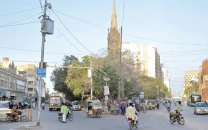
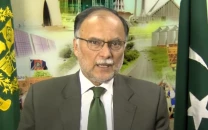

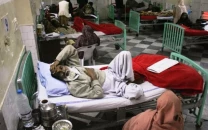
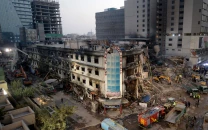
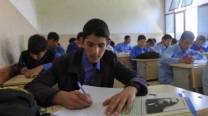












COMMENTS
Comments are moderated and generally will be posted if they are on-topic and not abusive.
For more information, please see our Comments FAQ